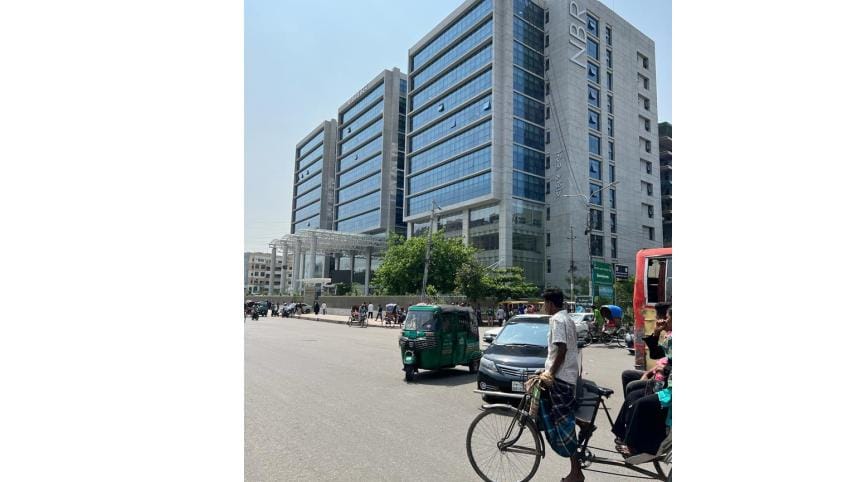Flawed NBR split risks severe fallout

The ordinance abolishing the National Board of Revenue (NBR) and splitting it into two entities—Revenue Policy and Revenue Management—does not adequately reflect the recommendations of the advisory committee, according to one of its members.
"The government's ordinance has not reflected this separation in the way we recommended; in my personal view, it has not been done accordingly," said Farid Uddin, a member of the NBR reform committee.
The committee member warned that since the NBR staff had protested against the ordinance demanding its cancellation, if the institution is now split out of "resentment," it could create a "disastrous" situation for the nation.
"If the adjustment of the total reform process is not properly conducted, it would be disastrous for the nation. I told this to the government," he said.
"At least now, everything is under one roof. But if the institution is split in the wrong way, the consequences could be far more severe," he said.
He made these observations at a roundtable on the NBR reforms organised by the Metropolitan Chamber of Commerce and Industry (MCCI) and Policy Exchange Bangladesh (PEB) at the MCCI yesterday.
The committee recommended that some representatives from the private sector must be included in the policymaking committee. Furthermore, any policy adopted should be continued for at least five years, he said.
On May 12, the government issued an ordinance to abolish the NBR and create two new divisions—Revenue Policy and Revenue Management.
Following this, the NBR officials and employees staged a one-and-a-half-month-long movement demanding rational reforms based on opinions from all stakeholders.
Later, on June 29, a committee led by Dr M Fouzul Kabir Khan, adviser to the Ministry of Power, Energy, and Mineral Resources, was formed to review the ordinance.
Based on its recommendations, the Advisory Council approved amendments to the ordinance. The two divisions are expected to start operations by December.
At the roundtable, Farid Uddin said the reform committee prepared its recommendations by evaluating the demands and opinions raised by businesses and stakeholders over the past 10–15 years regarding the NBR.
To gather feedback, the report was sent to 75 organisations, institutions, associations, and chambers, including several political parties such as BNP and Bangladesh Jamaat-e-Islami.
"Unfortunately, only the foreign chamber gave a somewhat complete response. Dhaka Chamber, MCCI, and ICMAB provided partial feedback. Apart from that, we received nothing," he said.
In this context, he stressed the need for a national consensus on the NBR reform.
"Without consensus, there will be no pressure on the government to implement reforms. My request to businesses is that they raise this issue in different forums and discussions," he added.
Former NBR chairman Abdul Mazid said, "The recommendations of the business community and stakeholders must be taken into account."
"It is not enough to prepare a report or issue an ordinance. Without political commitment, implementation remains doubtful," he said.
Dividing the NBR into "Revenue Policy" and "Revenue Management" departments will not solve all the problems, said BGMEA Senior Vice-President Inamul Haque Khan.
Business associations believe the revenue board and its bodies must first be freed from corruption. They also stressed the need for long-term revenue policies, at least five years, for income tax, customs, and VAT, he said.
Mohammad Hatem, president of the knitwear manufacturers' association BKMEA, expressed his frustration at the current tax policy for export-oriented industries.
He pointed to "unnecessary" certification requirements for importing capital machinery and other activities, which cause delays and increase costs.
MCCI President Kamran T Rahman highlighted that fewer than 3 percent of people in the country pay income tax, while large-scale tax evasion is widespread in the business sector.
"Our tax base remains chronically narrow, with fewer than 3 percent of citizens filing income tax returns," he said.
"Corporate tax evasion is widespread, enforcement is weak, and our system is overly complex, riddled with discretionary practices that discourage compliance and create opportunities for corruption," he said.
"The result is a vicious cycle of low compliance, low trust, and low revenue," he said.
"As Bangladesh prepares for LDC graduation and aspires to upper-middle-income status—whether in 2026 or slightly later—these are risks we cannot afford to ignore," he added.



 For all latest news, follow The Daily Star's Google News channel.
For all latest news, follow The Daily Star's Google News channel.
Comments